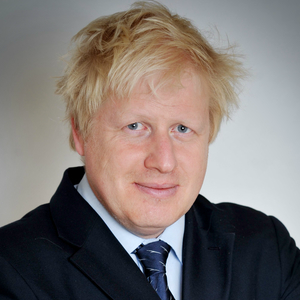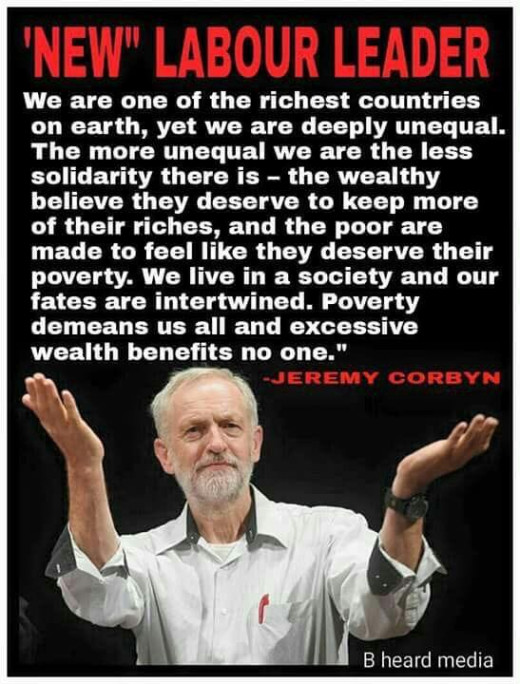So Britain You Finally Did It: You Elected Boris With a Thumping Majority
Boris Johnson.

Boris Johnson now has a thumping majority, all of his foes, have been dealt with firmly, it would appear. Jo Swinson, who wanted to cancel Brexit, has lost her seat and the Lib-Dems, have been reduced to 11, with Ed Davey, taking over as acting leader, perhaps.
The threat (as the Tories saw it) of Jeremy Corbyn, becoming Prime Minister, has gone away. Jeremy Corbyn and his 'For the many, not the few' manifesto was rejected spectacularly. In seats in the Midlands and North of England, Labour was crushed and replaced by Conservative MPs. These seats like Blyth, in the far north of England, had been Labour for generations, they fell on election day, on 12 December 2019, to the Tories (Conservatives). Jeremy Corbyn was re-elected in his north London seat of Islington and continues, until a new leader is elected (most probably in March 2020) as leader of the Labour party.
In Scotland, the Scottish National Party was elected in massive numbers both to the Scottish Parliament and Westminister. There are now 48 SNP MPs in Westminister, headed up by Ian Blackford, who comes under the authority of Scottish First Minister, Nicola Sturgeon. Of all the opposition parties to the Tories, in Westminister, the SNP is probably the only united one. United against the Tories and united for Scotland to leave the UK, by way of a second independence referendum. Of course, at the end of the day, the choice of whether to grant Scotland another Indyref 2, as it is known, is not down to the SNP, it's down to Boris Johnson.
Yesterday, the Queen, in the House of Lords, read out the government's agenda for the UK. The speech was written for her by Boris Johnson's government, including the fact that the NHS will be funded appropriately (apparently) and this will be enshrined by law. There were also, other measures, supposed, to say thank you to northern and midland people for lending their vote to Boris. However, no mention was made of scrapping or improving the controversial benefit of Universal Credit. This fact plus others were criticised by Jeremy Corbyn, after back in the House of Commons.
Many on the left and some not, are now worried, by Johnson and his massive majority in parliament. Since this government came to power in 2010, austerity has been the measure of the day, with services like the police, local councils and other services people depend on, being cut. Supposedly to save the money in the supposed mess the last Labour government left behind. Homelessness, zero-hour jobs, suicide, poverty, food banks, baby banks, etc have all sprung up, thanks in large part to the Conservative government's policies of austerity. There are worries despite Boris Johnson's reassurances that these austerity policies will continue. That the NHS already on its knees will be sold off in part or fully to Trump, that universal credit (despite the cap being lifted) will continue to make people worse off, and, the gap between the haves and have nots, will get worse. Boris has paid lip service to the environment, clean energy, etc, but like James, the brother of Christ said, "Words are nothing, without deeds".
Boris, during the election, was made out to be something of a liar, saying one thing and doing something else. So on that proviso, are Boris's promises to repay those who lent him their vote real?
One thing is for sure, Boris will probably be in power now, for another 5 years, if he goes full term. People are now expecting Boris, to deliver, on his promises of a better life for all.
Yes, Boris has the chance to take another route to his predecessors Cameron and May. The fact is he has only been in power, a short time, some say give him a chance. No doubt, those who voted him in, will, but should he let them down, he may be in for a big fall.
Obviously, Brexit is the big issue, that did for Jeremy Corbyn and for Jo Swinson. Boris wants to leave the EU, on 31 January, and he is hoping to, now he has a massive majority in parliament.
Certainly, after the UK has left the EU, that will not be the end, there will still be decades of red tape negotiations to come. Then there will be the UK's future relationship with the EU, once we are out, and indeed the rest of the world.
Jeremy Corbyn: Lost Big.






